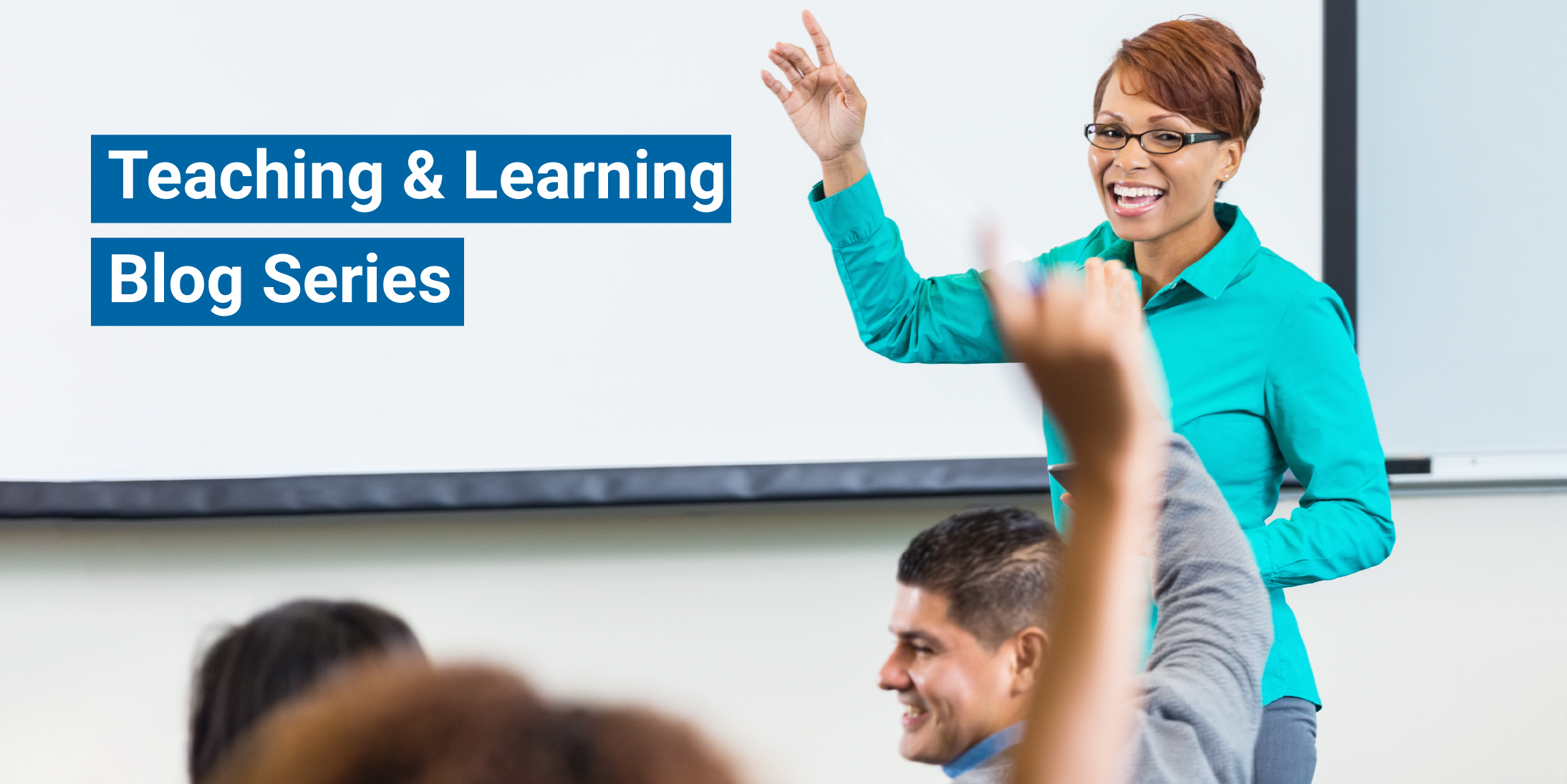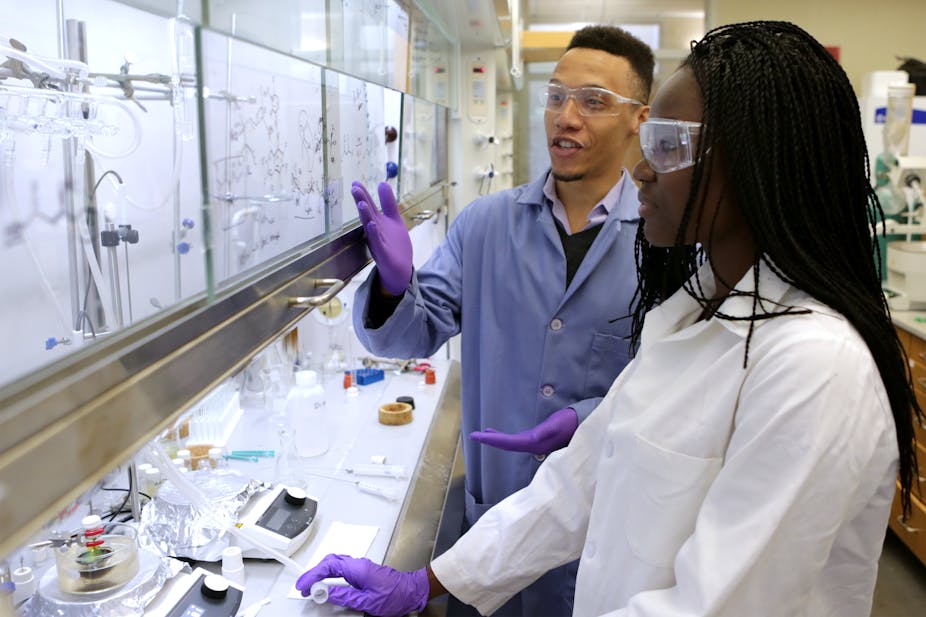2020 STEMwrite Institute for Writing to Learn in STEM Disciplines
/in Aspire2Lead, Aspire2Teach, Featured News, News/by shaquitahp[Job Announcement] Academic Administrator III – UCLA Undergraduate Minor in Biomedical Research
/in Aspire2Lead, Aspire2Teach, Jobs, News, Uncategorized/by shaquitahpAcademic Administrator III – UCLA Undergraduate Minor in Biomedical Research
Job #JPF04812
- L&S Life Sciences – MINOR IN BIOMEDICAL RESEARCH
RECRUITMENT PERIOD
DESCRIPTION
UCLA Undergraduate Minor in Biomedical Research
ACADEMIC ADMINISTRATOR III
Summary
(1) Develop and implement inquiry-based laboratory courses for undergraduate students, including preparation of manuscripts for publication of student-generated research data; (2) expand teaching capacity, as needed, for existing courses; (3) provide crucial guidance to students seeking lab placements and broker the arrangements between faculty and students; and (4) enhance our ability to disseminate our results internally and externally and compete effectively for extramural funding. The incumbent reports to the Director of the UCLA Undergraduate Minor in Biomedical Research, an interdisciplinary minor, housed within the Division of Life Sciences and overseen by a Faculty Advisory Committee comprised of faculty members from the biomedical sciences in both the College and the School of Medicine.
DUTIES:
Academic Administration
- Approve admission of students to the minor.
- Manage the placement of undergraduates in laboratories that best suit their interests.
- Manage mechanisms to provide individual career advice and mentoring to students to facilitate their acceptance and transition to postgraduate programs (MD, MSTP, PhD).
- Monitor research laboratory training programs to ensure high standards of excellence.
- Identify sources of and assist in application for external funding.
- Participate in dissemination of program activities and outcomes through the preparation of scholarly manuscripts for publication, development of online resources, and presentation at professional conferences.
- Develop new vehicles for intramural and extramural outreach.
- Flexibility to develop programs and activities that align with and enhance the vision of the Biomedical Research Minor.
Instruction
- Teach lower division inquiry-based laboratory course.
- Teach additional offerings of lower or upper division courses as needed.
- Participate in development of new courses that introduce students to the process of research and scientific inquiry.
QUALIFICATIONS: Qualifications include a Ph.D. degree in a life science discipline (Biology, Microbiology, Developmental Biology, Physiology, Biochemistry, Neuroscience, Genetics or other related field); experience in undergraduate mentorship or teaching at a university level; demonstrated skill in teaching undergraduate research-based laboratories at a university level or ability to conduct undergraduate seminars based on current biomedical research; experience mentoring undergraduate students in issues related to biomedical research. Experience with innovative teaching methodologies essential. Must have ability to develop and lead inquiry-based laboratory courses. Experience with genetic model systems highly preferred. Applicants with Drosophila expertise are strongly encouraged to apply.
SALARY: Commensurate with qualifications and experience.
TERM OF APPOINTMENT: 12-month appointment.
JOB LOCATION
Los Angeles, CA
REQUIREMENTS
DOCUMENTS:
Curriculum Vitae – Your most recently updated C.V.
Cover Letter
Statement of Teaching
Statement of Contributions to Diversity – Statement addressing past and/or potential contributions to diversity through research, teaching, and/or service.
Statement of Research (Optional)
Misc. / Additional (Optional)
REFERENCES:
Names, addresses, and telephone numbers of three references.
The University of California is an Equal Opportunity/Affirmative Action Employer All qualified applicants will receive consideration for employment without regard to race, color, religion, sex, national origin, sex orientation, gender identity, disability, age or protected veteran status. For the complete University of California nondiscrimination and affirmative action policy see: UC Nondiscrimination & Affirmative Action Policy (http://policy.ucop.edu/doc/4000376/NondiscrimAffirmAct).
JOB LOCATION
REQUIREMENTS
Document requirements
- Curriculum Vitae – Your most recently updated C.V.
- Cover Letter
- Statement of Research (Optional)
- Statement of Teaching
- Statement on Contributions to Equity, Diversity, and Inclusion – An EDI Statement describes a faculty candidate’s past, present, and future (planned) contributions to equity, diversity, and inclusion. To learn more about how UCLA thinks about contributions to equity, diversity, and inclusion, please review our Sample Guidance for Candidates and related EDI Statement FAQ document.
- Misc / Additional (Optional)
- 3-5 required (contact information only)
MOOC Inclusive Teaching: Supporting All Students in the College Classroom
/in Aspire2Lead, Aspire2Teach, Featured News, News, Uncategorized/by shaquitahpThe Columbia University Center for Teaching and Learning (CTL) is excited to announce the release of the first ever MOOC (massive open online course) dedicated entirely to the topic of inclusive teaching in higher education. The MOOC, titled Inclusive Teaching: Supporting All Students in the College Classroom, provides practical, accessible, and usable strategies that instructors can implement in their classrooms to create and maintain a supportive learning environment for all students. The self-paced course is open to all. Registration is now open.
Led by Columbia CTL staff, the course also features several experts who offer strategies and insights from their own research and teaching contexts. Please also find the video trailer announcing the launch of the course.
Promoting Diversity at the Top
/in Aspire2Lead, Featured News, News, Uncategorized/by shaquitahpPromoting diversity at the top
 Los Angeles Southwest College President Seher Awan
Los Angeles Southwest College President Seher AwanBY ED FINKEL JUNE 17, 2019 PRINT
Those who picture a “gray-haired, white, heterosexual male” when they are about to meet a community college president are not necessarily wrong, but the assumption is increasingly out of date in 2019.
Given the diverse populations they serve, two-year institutions are striving to recruit and retain a diverse set of leaders with similar life experiences to others on campus.
Teaching Matters and So Does Curriculum: How CUNY Start Reshaped Instruction for Students Referred to Developmental Mathematics
/in Featured News, News/by shaquitahp
Adult proficiency in numeracy in the United States lags behind that of other developed nations, and the nonselective institutions that dominate the higher education sector struggle to address the learning needs of the sizeable proportion of students who enroll in their institutions and are deemed academically underprepared in mathematics. Research on curriculum and pedagogy in developmental (or remedial) mathematics indicates that typical teaching approaches emphasize memorization, often at the expense of the kinds of conceptual understanding that prepare students for college-level mathematics and the numeracy demands of the workforce. This paper examines CUNY Start, an innovative pre-matriculation developmental education program developed by The City University of New York (CUNY) that reimagines the design and implementation of remedial instruction to better serve students with weak academic preparation.
Studying Teaching in Community Colleges: Creating the Conditions Where Effective Instruction Can Flourish
/in Featured News, News/by shaquitahp
Research by CCRC and others has identified many ways student outcomes can be improved, including through enhanced student advising, well-designed student supports, more coherent programs of study, and opportunities to quickly enroll in college-level coursework. However, in much of higher education research and in many of the large-scale reform efforts undertaken by states and colleges, what happens inside the classroom has received less attention.
Yet students’ time in courses is at the heart of the community college experience and central to the mission of colleges. It is within the classroom that students gain the skills and knowledge needed for future coursework, careers, and civic life. High-quality educational experiences have the potential not only to improve student outcomes generally but also to close achievement gaps resulting from inequitable distribution of educational opportunities. Students’ experiences in their classes can shape their perceptions of themselves and of the subject they’re studying and therefore impact their aspirations, their desire to continue in their field and in college, and ultimately their educational attainment.
One-Year Research Experience for Associate’s Degree Students Impacts Graduation, STEM Retention, and Transfer Patterns
/in Featured News, News/by shaquitahpAbstract
The CUNY Research Scholars Program (CRSP) provides a yearlong faculty-mentored research experience to associate’s degree students. The program takes place at all 10 associate’s degree–granting colleges within the City University of New York system. We report on a mixed-methods study of 500 students who participated in the program during its initial 3 years. Quantitative longitudinal assessments revealed that students who engaged in CRSP were more likely to be retained in a science, technology, engineering, and mathematics (STEM) discipline or to graduate with a STEM degree than their counterparts in a matched comparison group. Furthermore, students who participated in CRSP demonstrated an increased likelihood of transferring to the more research-intensive 4-year schools within the CUNY system and to R1 universities outside the CUNY system. CRSP students reported an increased sense of belonging in college based on survey data, and focus groups with their mentors provided insight into the factors that led to the gains listed above. These combined results—of student data analysis, student surveys, and mentor focus groups—provide evidence that early research experiences for associate’s degree students contribute to their academic success.
Here’s How to Increase Diversity in STEM at the College Level and Beyond
/in Featured News, News/by shaquitahpHere’s How to Increase Diversity in STEM at the College Level and Beyond | The Conversation

The Meyerhoff Scholars program has been called the “gold standard” for providing a path into STEM research for African Americans, Hispanics, and economically disadvantaged white students who are underrepresented in the field. It has also been credited with changing the culture of the campus at UMBC.
The Science Divide: Why do Latino and Black Students Leave STEM Majors at Higher Rates?
/in Featured News, News/by shaquitahpThe Science Divide: Why do Latino and Black Students Leave STEM Majors at Higher Rates? | The Washington Post
Dropout rates varied among the groups, too. About 20 percent of Latino and 26 percent of black STEM majors left their institutions without earning a degree, while 13 percent of white STEM majors dropped out, according to the study.
